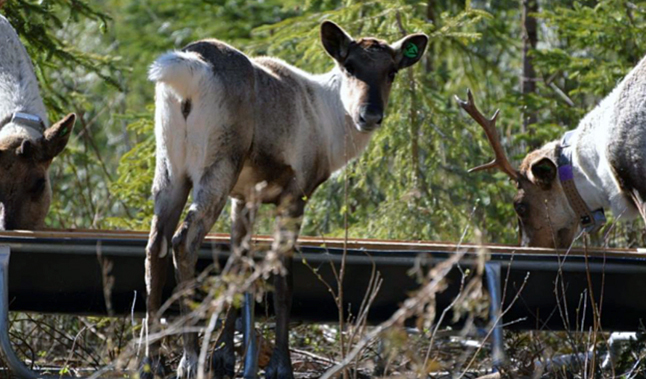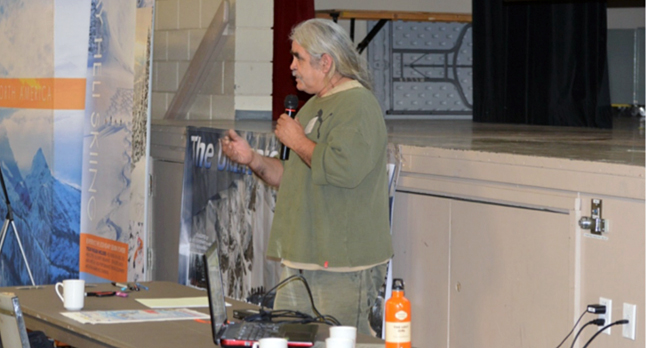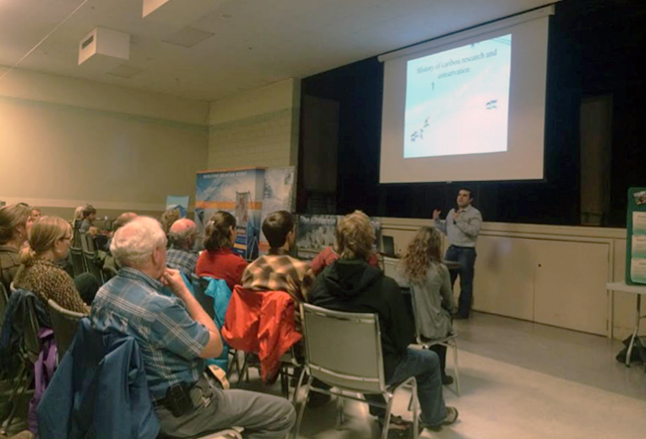
By Sylvia Wood
Nearly 100 people gathered at the Community Centre two weeks ago to hear several speakers discuss the Revelstoke Caribou Rearing in the Wild Project.
This ambitious project was a result of a society formed with numerous stakeholders in the community coming together with the goal of increasing Mountain Caribou calf survival. These stakeholders and funders opened the night by having booths representing their organizations. 14 different groups had booths including CBT, Parks Canada, Downie Timber, Revelstoke Community Forest Corp., The Snowmobile Club, the NCES, Golder Associates, ski companies etc.

The first speaker was Randy Williams from the Splatsin band of the Shushwap First Nation. He gave a traditional blessing to open the night and reminded us all of our connection to the land and the animals on it. We were challenged to think about how we will pass on our environment to the generations that follow. He also told a story of his father who used to see huge herds of caribou when he was travelling through the Monashee Mountains.

Rob Serrouya followed him with a talk about the history of caribou conservation in the area. He discussed the research that was done on caribou populations and what was discovered about their cause of decline. He highlighted how moose, deer and other ungulate populations increased with change in the landscape and how this brought more predators who in turn eat caribou along with their main prey source.
The last two speakers were Kevin Bollefer and Bert Marchand who talked about the workings of the maternity pen itself. The pictures really illustrated what a huge undertaking it was from building the maternity pen, catching the pregnant caribou, gathering enough lichen to feed them all, keeping them feed, collaring the babies as they were born and then making sure they left! Some very cute photos of baby caribou were shown as well as a great video of a little mischievous one. They explained how the 6.4-hectare pen was built to last, with the hope that 18-20 cows will be placed in next year. For the pilot project 12 caribou were initially captured and of the nine who were pregnant, all had babies. All the caribou were released at the end of July. The nine babies had spent between one and two months in the pen so were far bigger and stronger than if they were born in the wild. So far so good with no sign that any of them have been lost to predation.
Thanks to all those sponsors, satakeholders and members of the public who came out to hear about the maternity pen project.



